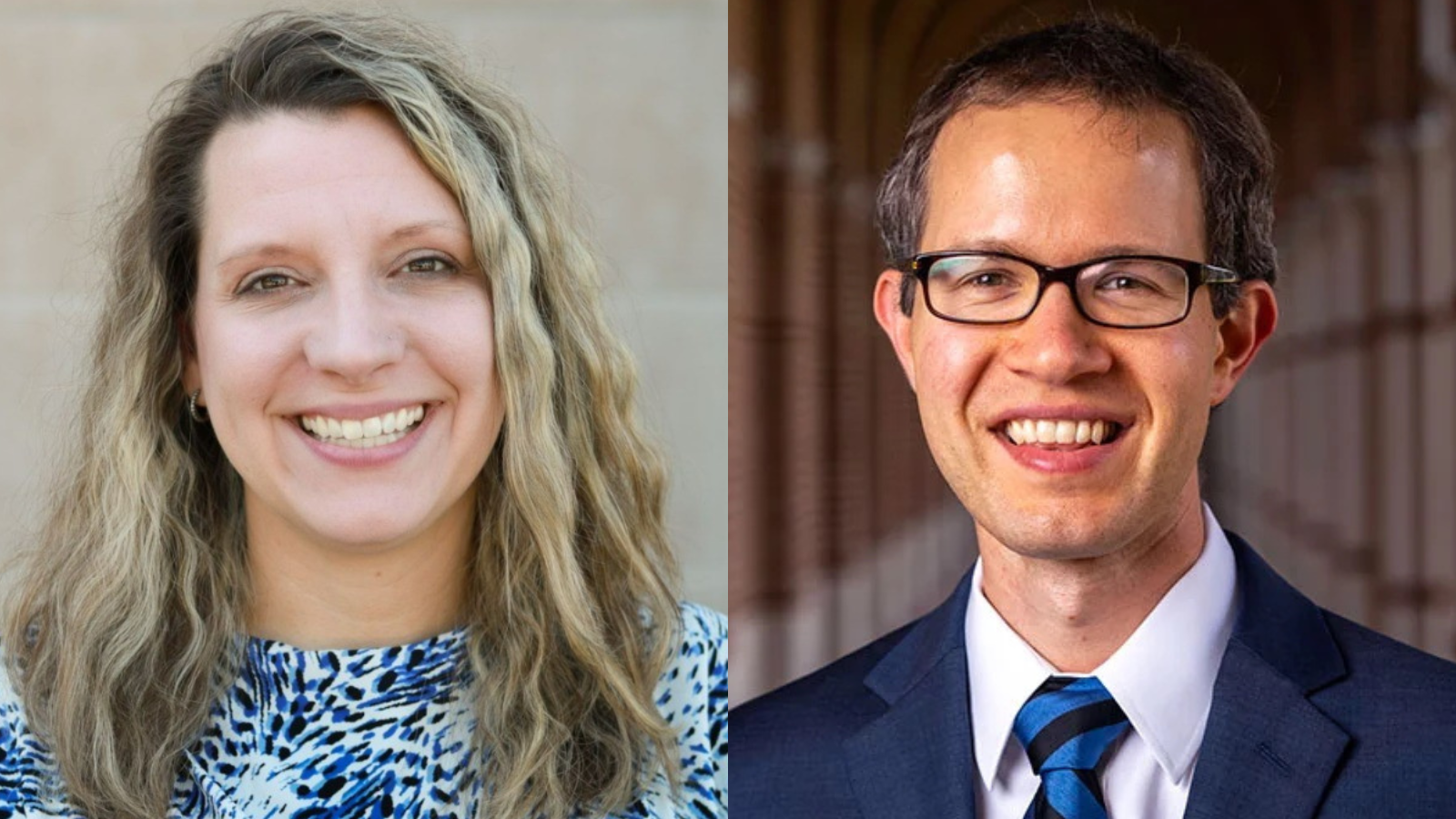Diversity in the workplace begins in the high school classroom, where students are inspired to pursue their field of interest.
Joseph Young, assistant teaching professor of electrical and computer engineering, and Brittany Templeton, assistant director for computer science and mathematics in Rice University’s Office of STEM Engagement (R-STEM), work as a dynamic team to provide high school students with equitable STEM learning opportunities.
Since 2021, Young and Templeton have impacted hundreds of high school students annually through R-STEM’s Digital Health Young Scholars Program—a three-week summer experience hosted by R-STEM—as well as shorter workshops taking place during the school year. Young develops curriculum and mentors the students, while Templeton serves as the R-STEM program lead.
These programs are intended for students who may not otherwise have such an opportunity. Designed to break down financial barriers, the Digital Health Young Scholars programs offer free tuition and parking on campus.
On Jan. 10-11, more than 100 high school students will participate in Young Scholars Invent, which was launched in May 2024 as a continuation of the Digital Health Young Scholars summer program. Throughout the workshop, students will collaborate to tackle real-world challenges, engage in active design, build and test their solutions, and present to a panel of judges.
The program’s goal is to increase diversity in the STEM workforce and prepare students with the skills needed for professional success. Exposure to STEM opportunities in high school is critical for this outcome. “The data shows that we are having students that didn’t have an interest in STEM before, but now they are interested in majoring in STEM in college,” said Templeton.
Sparking that interest now among the diverse Digital Health Young Scholars cohorts could have a big impact on the workforce in years to come. Recent data from the National Science Foundation (NSF) shows that women make up only 16 percent of engineering-related industry professionals, and less than seven percent of the workforce is African American.
“If you have a bunch of people with the same background and experiences, you won’t have the diversity you need to have the best engineering solutions,” said Young. “You need a social consciousness that is well-informed from people with diverse backgrounds to solve today’s problems.”
Young brings his own research into the workshops when engaging with students, giving students real-world examples of how technical engineering skills can improve equity in digital health. For example, one of his past workshops included a discussion on skin tone bias in imaging algorithms for pulse oximetry, exposing the students to these problems and inspiring them to develop equitable solutions.
“Joe’s content knowledge and ability to convey content to the students in a meaningful way at their level is very special,” said Templeton. “You can see how his enthusiasm and excitement inspires the students to engage with the program.”
Templeton brings inside knowledge to her R-STEM leadership role as a former educator and R-STEM program participant, mentor, curriculum designer and teacher professional development leader. Her dedication to increasing the impact of each Digital Health Young Scholars program has resulted in new program elements, from professional poster making to inviting previous Young Scholars mentors to return and give feedback to current students.
“Brittany brings so much energy and organization to the table,” said Young. “Her work empowers [other curriculum leaders in the program] to focus on the content.”
The Digital Health Young Scholars Program and related workshops are co-sponsored by the Precise Advanced Technologies and Health Systems for Underserved Populations (PATHS-UP) and Expeditions in Computing—both of which are funded by the NSF.
In collaboration with the Center for Engineering Excellence Through Equity, this story is part of a series highlighting alumni, faculty, staff and students from the George R. Brown School of Engineering and Computing and their efforts to promote equity in engineering.

